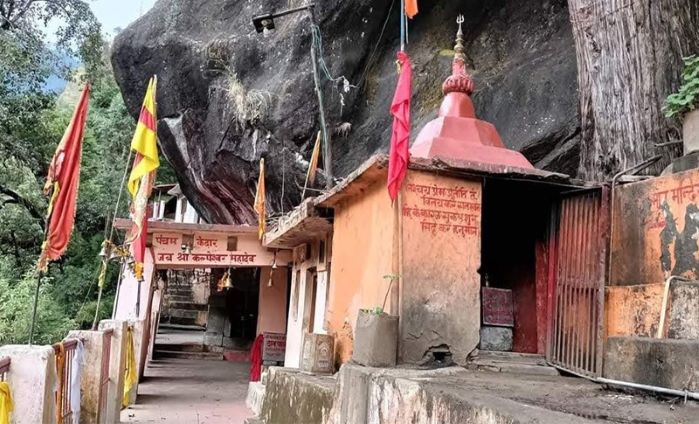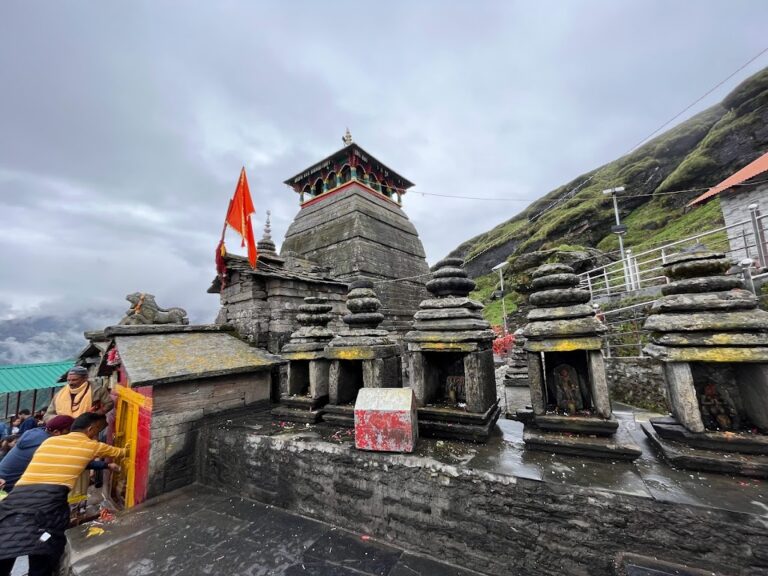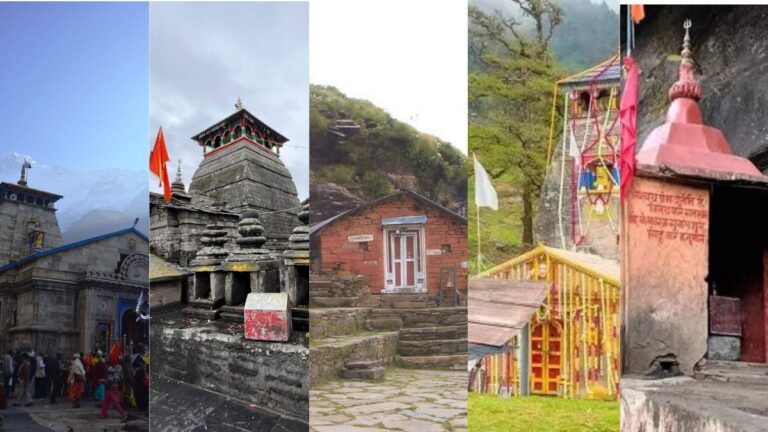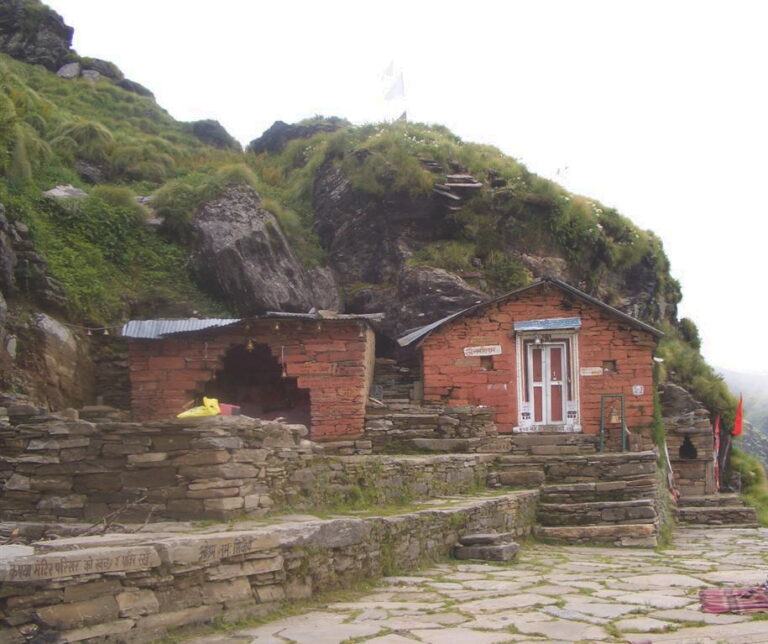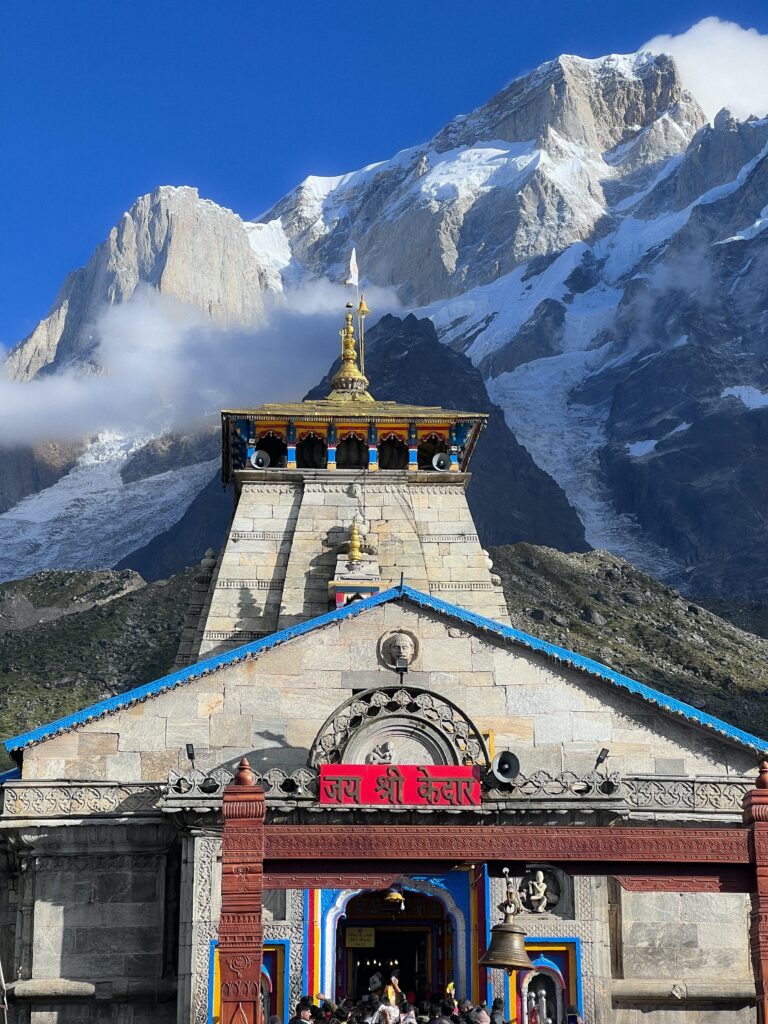Madmaheshwar: A Spiritual Haven in the Garhwal Himalayas
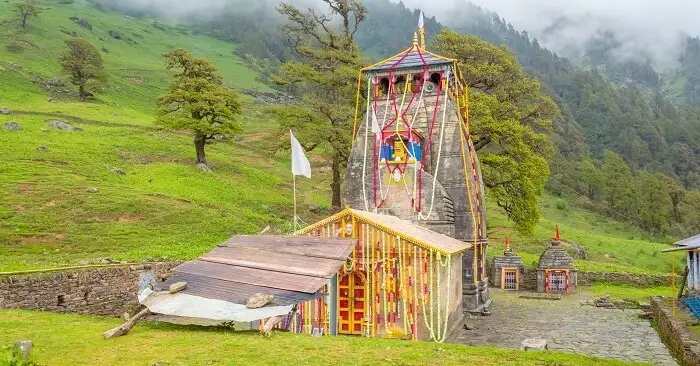
Nestled in the serene Garhwal Himalayas of Uttarakhand, India, Madmaheshwar stands as a testament to the divine beauty and spiritual significance that characterizes the region. This sacred destination, often overshadowed by its more famous counterparts like Kedarnath and Badrinath, offers a unique blend of natural splendor and religious importance. As we embark on this journey to explore Madmaheshwar, we’ll delve into its historical, geographical, and cultural facets, uncovering the reasons that make it a hidden gem in the heart of the Himalayas.
Madmaheshwar, situated at an elevation of around 3,289 meters (10,794 feet) above sea level, is a destination that unfolds like a dream in the midst of the Garhwal Himalayas. This sacred site is dedicated to Lord Shiva, the destroyer in the Hindu trinity, and is considered one of the Panch Kedar, a group of five holy temples associated with the mighty lord. While Kedarnath might be the most renowned among the Panch Kedar, Madmaheshwar, with its tranquil surroundings and untouched beauty, holds a distinct allure for those seeking a spiritual retreat in the lap of nature.
Table of Contents
Historical Significance of Madmaheshwar
Madmaheshwar reverberates with ancient legends and mythology that lend it a mystical aura. According to Hindu mythology, it is believed that after the great war of Mahabharata, the Pandavas sought the blessings of Lord Shiva to absolve themselves of the sins committed during the battle. The deity, reluctant to meet the Pandavas, assumed the form of a bull and hid in the Garhwal region. Madmaheshwar, the place where Lord Shiva appeared in the form of a bull (‘Mad’ means intoxicated, and ‘Maheshwar’ is another name for Shiva), became a sacred pilgrimage site.
The temples and structures in Madmaheshwar stand as architectural marvels, reflecting the rich cultural heritage of the region. The Madmaheshwar temple, dedicated to Lord Shiva, is the primary pilgrimage site. Built in the classic North Indian architectural style, the temple’s intricate carvings and stone masonry transport visitors to an era of divine craftsmanship. The architecture is not only a testament to the religious fervor but also an embodiment of the region’s historical legacy.
Geographical Charms of Madmaheshwar
Location and Accessibility: Madmaheshwar’s geographical location adds to its allure, surrounded by the majestic peaks of the Garhwal Himalayas. The journey to Madmaheshwar typically involves reaching Ukhimath, the nearest town, and then embarking on a trek. The trek, while challenging, provides an opportunity to witness the mesmerizing landscapes and experience the purity of the Himalayan air. The geographical isolation contributes to the spiritual ambiance, creating an atmosphere of serenity and detachment from the worldly chaos.
Flora and Fauna: The region around Madmaheshwar is a haven for nature enthusiasts, boasting diverse flora and fauna. Alpine meadows adorned with vibrant flowers, dense forests, and the melodious chirping of Himalayan birds create a symphony of natural beauty. Rare species like the Himalayan monal, musk deer, and various species of butterflies add to the ecological diversity, making Madmaheshwar a paradise for wildlife enthusiasts and botanists alike.
Panoramic Views and Treks: The panoramic views from Madmaheshwar are nothing short of breathtaking. Peaks like Chaukhamba, Neelkanth, and Kedarnath surround the region, providing a picturesque backdrop for the spiritual journey. The trek to Madmaheshwar offers an adventure-filled experience, with each step unveiling a new facet of the Himalayan landscape. Trekkers can explore routes like the Kalpeshwar-Madmaheshwar trek, which takes them through dense forests, meadows, and pristine streams, enhancing the overall trekking experience.
Cultural Tapestry: People and Traditions
Local Communities: The Garhwal region is home to warm and hospitable communities that have preserved their unique traditions and customs for generations. The people of Madmaheshwar, predominantly belonging to the Garhwali and Kumaoni ethnic groups, have a deep-rooted connection with the land. Visitors can immerse themselves in the local culture, witnessing traditional dance forms, folk music, and indigenous art that reflect the vibrancy of the region.
Festivals and Celebrations: Festivals in Madmaheshwar are a celebration of spirituality and community bonding. Maha Shivaratri, dedicated to Lord Shiva, is one of the most significant festivals observed with great fervor. Devotees from far and wide participate in the festivities, adding a cultural vibrancy to the spiritual ambiance of Madmaheshwar. The rhythmic beats of traditional drums, the aroma of incense, and the lively processions during festivals create an immersive experience for visitors.
Cultural Practices and Beliefs: The cultural practices and beliefs in Madmaheshwar are deeply intertwined with the spiritual essence of the place. Pilgrims often engage in rituals like ‘Abhishek,’ the ceremonial bathing of the deity’s idol, seeking blessings for themselves and their loved ones. The belief in the divine energy that permeates the region encourages a sense of reverence and humility among visitors, fostering a spiritual connection with the ancient traditions of the Himalayas.
Pilgrimage to Madmaheshwar: A Spiritual Odyssey
Spiritual Significance: Madmaheshwar holds profound spiritual significance for followers of Hinduism, particularly devotees of Lord Shiva. The temple is dedicated to Madmaheshwar, an incarnation of Lord Shiva in the form of a bull. Pilgrims believe that a visit to Madmaheshwar absolves them of their sins and brings them closer to spiritual enlightenment. The tranquil ambiance, surrounded by snow-capped peaks and the soothing melody of the Mandakini River, creates an atmosphere conducive to meditation and self-reflection.
Pilgrimage Routes and Rituals: The journey to Madmaheshwar is not just a physical trek but a spiritual odyssey. Pilgrims often commence their journey from Ukhimath, the base for the Panch Kedar Yatra. The trek to Madmaheshwar involves traversing through lush meadows, dense forests, and challenging terrains. The rituals performed at the temple, including ‘Darshan’ (viewing of the deity) and ‘Aarti’ (devotional offering with light), are integral to the pilgrimage, symbolizing devotion and surrender to the divine.
Accommodations and Facilities: Despite its remote location, Madmaheshwar offers basic accommodations and facilities for pilgrims. Simple guesthouses and ashrams provide a place for rest and rejuvenation after the arduous trek. Pilgrims can partake in community meals, fostering a sense of camaraderie among fellow travelers. The minimalistic lifestyle during the pilgrimage encourages a focus on the spiritual journey, creating an environment conducive to introspection and self-discovery.
Adventurous Pursuits in Madmaheshwar
Trekking and Mountaineering: Madmaheshwar is a haven for adventure enthusiasts seeking trekking and mountaineering experiences. The trek to Madmaheshwar offers a challenging yet rewarding adventure through varying terrains, providing a perfect blend of physical exertion and spiritual rejuvenation. The region is a gateway to other trekking routes, such as the Rudranath trek and the trek to Tungnath, the highest Shiva temple in the world, allowing trekkers to explore the diverse landscapes of the Garhwal Himalayas.
Camping and Nature Trails: Camping in the meadows surrounding Madmaheshwar is an experience that allows travelers to immerse themselves in the lap of nature. The pristine surroundings, far from the hustle and bustle of city life, create an ideal setting for camping. Nature trails through dense forests and alpine meadows offer a chance to explore the diverse flora and fauna of the region. The crisp mountain air and the rhythmic sound of the Mandakini River provide a soothing backdrop for a peaceful camping experience.
Breathtaking Landscapes for Photography: Madmaheshwar’s landscapes, characterized by snow-capped peaks, dense forests, and glistening rivers, offer a paradise for photography enthusiasts. The changing hues of the sky during sunrise and sunset, coupled with the play of light on the mountain peaks, create mesmerizing frames for photographers. Whether capturing the ethereal beauty of the temple or the raw wilderness of the trekking trails, Madmaheshwar provides endless opportunities for photographers to capture the essence of the Himalayas.
Modern Amenities and Infrastructure
Connectivity and Transportation: While Madmaheshwar is remote, modern amenities and improved infrastructure have enhanced connectivity. Ukhimath serves as the base for the Panch Kedar Yatra, and from there, pilgrims can hire local transportation to reach Sagar village, the starting point of the trek. Regular buses and shared taxis operate between major towns and Ukhimath, ensuring a smoother journey for pilgrims and travelers.
Accommodation Options: Despite its remote location, Madmaheshwar offers a range of accommodation options to cater to the needs of pilgrims and tourists. Guesthouses, ashrams, and budget accommodations provide a comfortable stay for visitors. The simplicity of these accommodations aligns with the spiritual and minimalist atmosphere of Madmaheshwar, allowing guests to focus on the essence of their journey
Local Cuisine and Hospitality: The local cuisine of Madmaheshwar reflects the simplicity and purity of the region. Traditional Garhwali dishes, prepared with locally sourced ingredients, offer a taste of the authentic Himalayan culinary experience. The hospitality of the locals adds to the warmth of the stay, as visitors are welcomed with open hearts and a genuine desire to share the beauty of their land.
Read More:- Kedarnath A Soulful Sojourn Amidst Himalayan Majesty
Harmony of Nature and Spirituality in Madmaheshwar
In the heart of the Garhwal Himalayas, Madmaheshwar stands as a harmonious blend of natural splendor and spiritual sanctity. The pilgrimage to this hidden gem not only takes travelers through challenging terrains but also unfolds the rich tapestry of history, culture, and adventure that defines the region. As pilgrims seek blessings at the Madmaheshwar temple, surrounded by panoramic views and pristine landscapes, they find a haven where the divine and the earthly coexist in perfect harmony.
Madmaheshwar beckons not just as a pilgrimage site but as a holistic destination where the soul connects with the divine, and nature reveals its pristine beauty. Whether seeking spiritual solace, embarking on an adventurous journey, or capturing the essence of the Himalayas through a lens, Madmaheshwar invites all to partake in its timeless allure.
Frequently Asked Questions (FAQ):
What is the best time to visit Madmaheshwar?
The best time to visit Madmaheshwar is during the summer months of May to June and the post-monsoon period of September to October. During these times, the weather is relatively mild, and the trekking routes are more accessible.
How difficult is the trek to Madmaheshwar?
The trek to Madmaheshwar is moderately challenging, with varying terrains that include steep ascents and descents. It is advisable for trekkers to have a reasonable level of physical fitness and acclimatize themselves to the altitude before embarking on the journey.
Are there medical facilities available in the region?
While Madmaheshwar is a remote destination, basic medical facilities are available in Ukhimath, the base for the Panch Kedar Yatra. It is recommended to carry a basic medical kit and consult with a healthcare professional before undertaking the trek.
Get Directions

